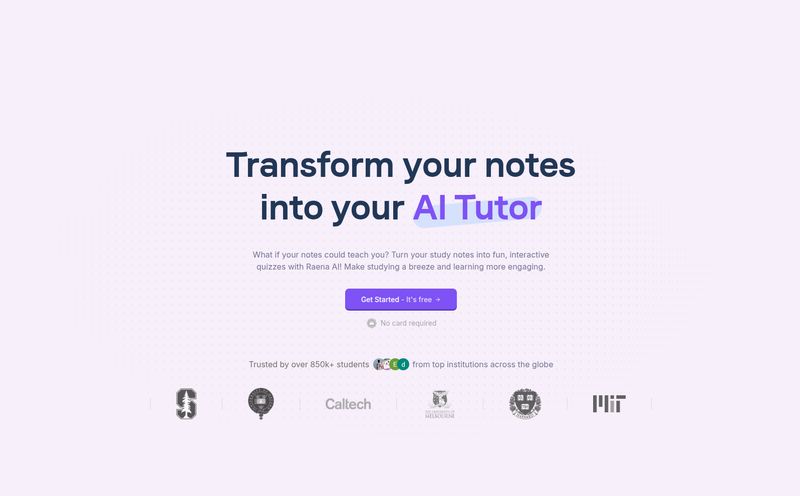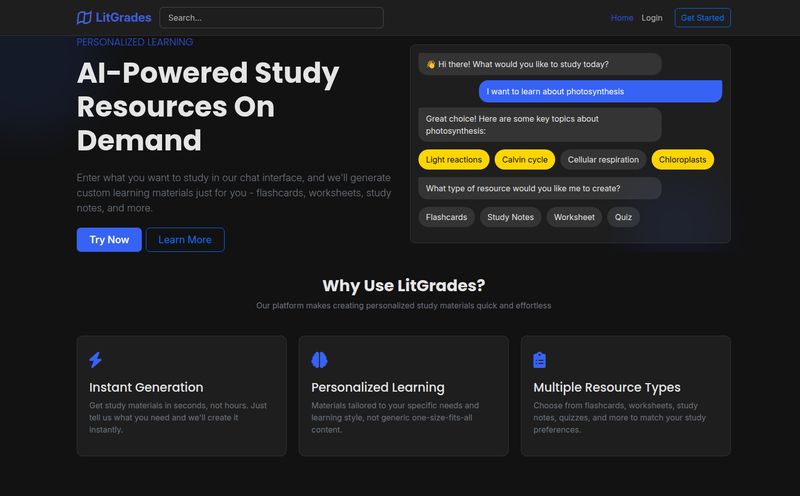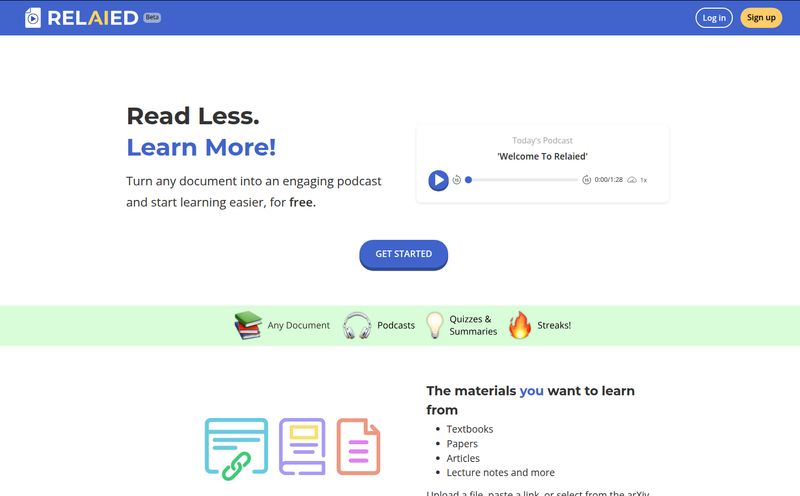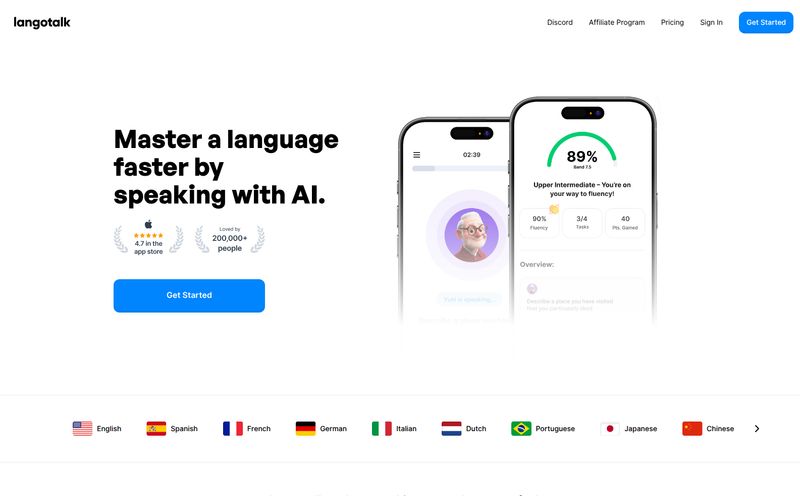The daily struggle over screen time. You know the one. It’s that low-grade hum of parental guilt that starts around 3 PM when you just need thirty minutes of peace, and the tablet feels like the only answer. We’ve all been there, negotiating screen minutes like we're brokering a high-stakes peace treaty. But what if screen time wasn't the enemy? What if it could be… productive?
I'm always on the lookout for tools that bridge that gap—something that feels like a game to my kid but secretly crams their brain with knowledge. It’s a tall order. Most “educational” games are just glorified cartoons with a few numbers thrown in. So when I stumbled upon a tool being called the “Tinder for learning,” my curiosity was definitely piqued. It’s called Kinder, and honestly, it’s one of the most interesting takes on EdTech I’ve seen in a while.
So, What Exactly is This Kinder App?
Forget everything you think you know about educational apps. There are no cartoon mascots singing the alphabet song here. Kinder is brilliantly simple. At its heart, it's a tap-and-swipe quest game. The tagline is literally “Swipe your way to knowledge.” Kids are presented with a topic, and then a series of cards with questions or facts. They swipe right for true, left for false, or just tap to reveal the next fact. It's an interaction they already know and, let's face it, are probably already addicted to.
The first thing that made me breathe a sigh of relief was the setup. Or rather, the lack of one. There are no logins. No creating accounts, no giving away your email, no worrying about what data is being collected on your seven-year-old. You just go to the site and… start learning. In today's world, that’s a massive win. The interface itself is clean, bright, and uncluttered. It doesn’t scream “I’M FOR KIDS!” with flashing colors and annoying sounds. It’s just… calm. It respects that kids can appreciate good design, too.
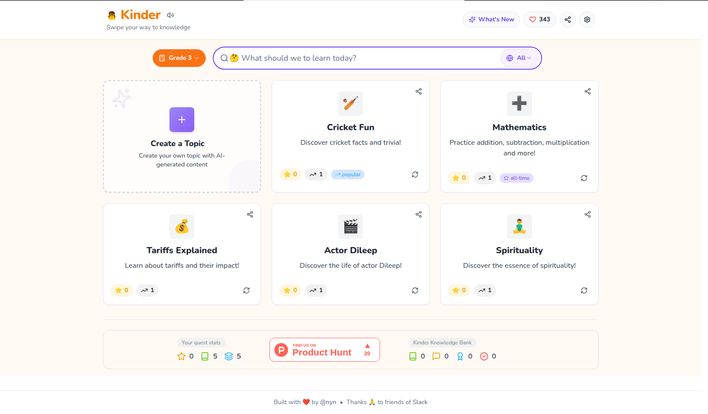
Visit Kinder
The Magic Ingredient: AI-Generated Quests
Here’s where it gets really cool. The content, the little quests your kids go on, is all generated by AI. The homepage is populated with ready-made topics ranging from the expected, like “Mathematics,” to the surprisingly specific, like “Cricket Fun” or even “Tariffs Explained.” I chuckled seeing that one. Who knew my kid could learn about international trade policy?
But the absolute killer feature is the ability to create your own topic. This is where Kinder goes from a neat tool to something truly special. Is your kid suddenly obsessed with capybaras? The history of LEGO? A specific Minecraft YouTuber? Just type it into the box, and the AI will spin up a custom quest for them in seconds. This turns their fleeting obsession into a genuine learning opportunity. It’s like having a personal trivia-maker on demand. It hands the creative reins over to the child, which is just brilliant for engagement.
My Honest Take: The Good, The Bad, and The AI
Alright, no tool is perfect. As an SEO guy, I spend my days working with and around AI content, so I know its strengths and its, well, weirdnesses. So let's get into the nitty-gritty of what works and what could be better.
Why I'm Genuinely Excited About Kinder
First off, the engagement factor is off the charts. The swipe mechanic is genuinely addictive, and using that for education is a stroke of genius. It feels less like a lesson and more like a game of hot-or-cold with facts. The simplicity is also a huge plus. There's no learning curve for parents or kids. You open the page, you pick a topic, and you go. That immediate accessibility means you're more likely to actually use it. And I have to say it again: the no-login policy is a breath of fresh air for any parent concerned about digital privacy.
But Let's Be Real, It's Not Perfect
Now for the reality check. The biggest strength—the AI-generated content—is also its potential weakness. As anyone who's played around with AI knows, it can sometimes get things wrong or present information that lacks context or depth. I would absolutely recommend a bit of parental guidance, especially for younger kids. It’s a great chance to talk about the information and ask, “does that sound right?” It turns it into an interactive experience for both of you. This isn’t a “set it and forget it” app. It's a conversation starter. You're also getting bite-sized facts, not a comprehensive education. It's fantastic for sparking curiosity about tariffs, but it's not going to replace a social studies class.
Who Is Kinder Actually For?
I see a few groups getting a real kick out of this. First, curious kids in that elementary to early middle school bracket (the UI shows a “Grade 3” selector, which feels spot on). They're old enough to read and be curious but young enough to still be delighted by a simple, fun game. Second, it's for parents like me, who are looking for better screen time options that don't feel like pulling teeth. And I could even see teachers using this as a fun, 5-minute warm-up activity to introduce a new subject in the classroom. The custom topic generator is a dream for that.
Let's Talk Money: The Kinder Pricing
This might be the best part. From everything I can see, Kinder is currently free. There's no pricing page, no subscription pop-ups, no premium features hiding behind a paywall. It’s just free. Will that last forever? Who knows. I wouldn't be surprised if they introduced a “Kinder Pro” down the line with more advanced features. But for now, it's an incredibly powerful tool available at no cost. You really cant beat that.
Final Verdict: Should You Let Your Kids Swipe on Kinder?
So, should you swipe right on Kinder? My answer is a resounding yes, with a small asterisk. This isn't a replacement for books or hands-on learning. But as a supplement? As a way to turn 15 minutes of downtime into a fun-fact-finding mission? It’s fantastic.
It’s a tool that sparks curiosity. It empowers kids to explore their own interests in a structured way. It’s a beautifully designed, simple-to-use platform that respects user privacy. Go ahead, give it a try with your kid. You have nothing to lose, and you might just find them excitedly explaining the basics of cricket or spirituality to you at the dinner table. And that’s a screen time win in my book.
Frequently Asked Questions
- Is Kinder really free to use?
- Yes, based on the current website and my experience using the tool, Kinder is completely free. There is no pricing information or subscription required to access its features.
- Do I need to create an account for my child?
- No, and this is one of its best features! Kinder requires no logins or account creation, which is great for privacy and ease of use. You can just visit the website and start playing immediately.
- What age group is Kinder best for?
- It seems best suited for elementary and early middle school students, roughly ages 6 to 12. The content is simple enough for younger kids to grasp, while the custom topic feature can keep older kids engaged with their specific interests.
- How does the AI content creation work?
- You simply type a topic you want to learn about into the creation box. The platform's AI then scours information related to that topic and automatically generates a series of question-and-answer or true/false cards for your swiping quest.
- Is the content on Kinder always 100% accurate?
- Because the content is AI-generated, there is a possibility of occasional inaccuracies or a lack of deep context. It's a good idea for parents to engage with their children while they use the app to discuss the topics and verify any facts that seem questionable.
- Can I track my child's progress on Kinder?
- Yes, the platform includes a simple progress tracker. The dashboard shows “Your quest stats,” which keeps a basic count of the questions you've answered correctly and incorrectly, adding a light gamification element to the learning process.
Reference and Sources
- The official website for the tool: Kinder.so
- Kinder's launch page on Product Hunt: Kinder on Product Hunt
